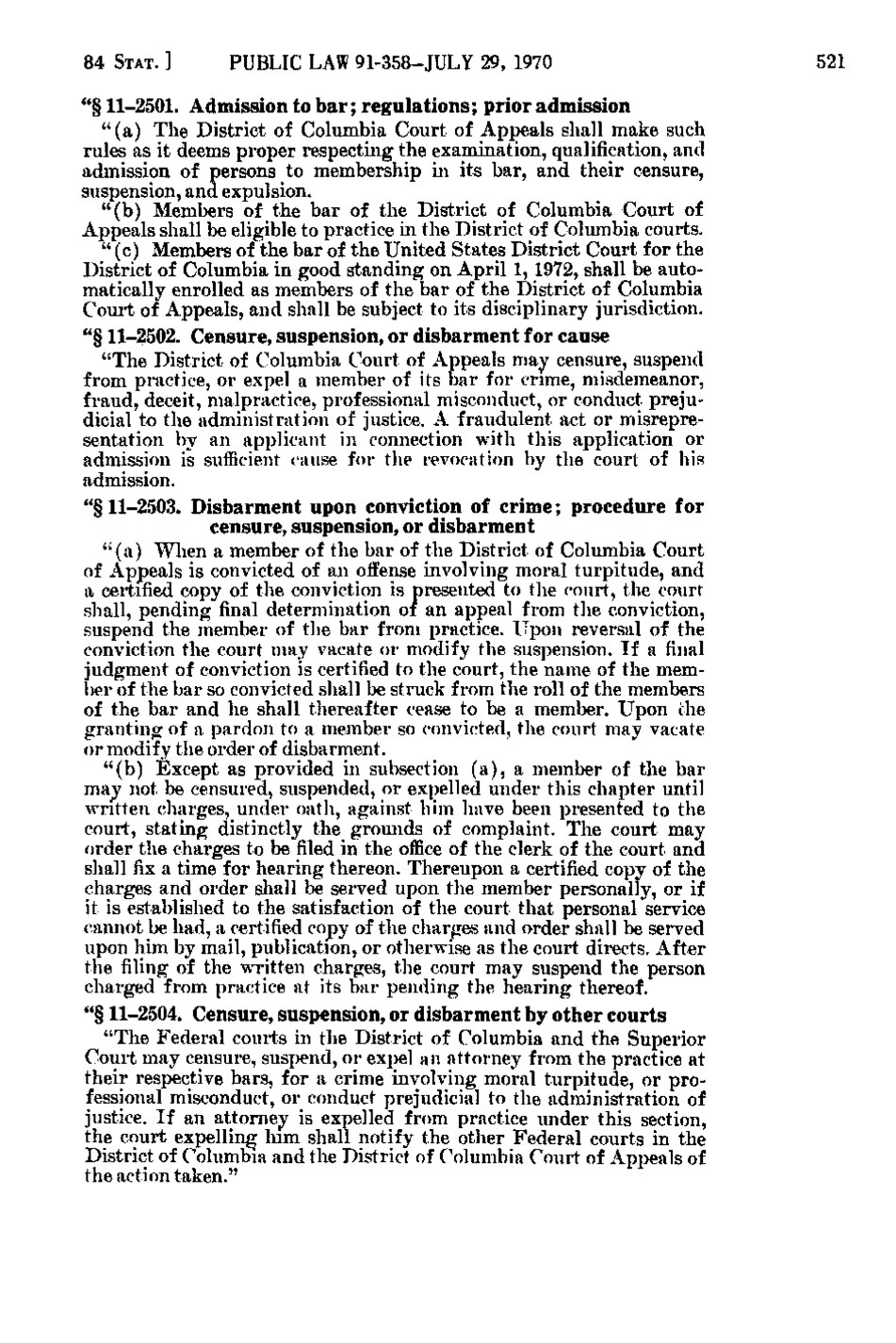84 STAT. ]
PUBLIC LAW 91-358-JULY 29, 1970
§11-2501. Admission to bar; regulations; prior admission " (a) The District of Columbia Court of Appeals shall make such rules as it deems proper respecting the examination, qualification, and admission of persons to membership in its bar, and their censure, suspension, and expulsion. "(b) Members of the bar of the District of Columbia Court of Appeals shall be eligible to practice in the District of Columbia courts. " (c) Members of the bar of the United States District Court for the District of Columbia in good standing on April 1, 1972, shall be automatically enrolled as members of the bar of the District of Columbia Court of Appeals, and shall be subject to its disciplinary jurisdiction. "§ 11-2502. Censure, suspension, or disbarment for cause "The District of Columbia Court of Appeals may censure, suspend from practice, or expel a member of its bar for crime, misdemeanor, fraud, deceit, malpractice, professional misconduct, or conduct prejudicial to the administration of justice. A fraudulent act or misrepresentation by an applicant in connection with this application or admission is sufficient cause for the revocation by the court of his admission. "§ 11-2503. Disbarment upon conviction of crime; procedure for censure, suspension, or disbarment " (a) When a member of the bar of the District of Columbia Court of Appeals is convicted of an offense involving moral turpitude, and a certified copy of the conviction is presented to the court, the court shall, pending final determination of an appeal from the conviction, suspend the member of the bar from practice. Upon reversal of the conviction the court may vacate or modify the suspension. If a final judgment of conviction is certified to the court, the name of the member of the bar so convicted shall be struck from the roll of the members of the bar and he shall thereafter cease to be a member. Upon the granting of a pardon to a member so convicted, the court may vacate or modify the order of disbarment. "(b) Except as provided in subsection (a), a member of the bar may not be censured, suspended, or expelled under this chapter until written charges, under oath, against him have been presented to the court, stating distinctly the grounds of complaint. The court may order the charges to be filed in the office of the clerk of the court and shall fix a time for hearing thereon. Thereupon a certified copy of the charges and order shall be served upon the member personally, or if it is established to the satisfaction of the court that personal service cannot be had, a certified copy of the charges and order shall be served upon him by mail, publication, or otherwise as the court directs. After the filing of the written charges, the court may suspend the person charged from practice at its bar pending the hearing thereof. "§ 11-2504. Censure, suspension, or disbarment by other courts "The Federal courts in the District of Columbia and the Superior Court may censure, suspend, or expel an attorney from the practice at their respective bars, for a crime involving moral turpitude, or professional misconduct, or conduct prejudicial to the administration of justice. If an attorney is expelled from practice under this section, the court expelling him shall notify the other Federal courts in the District of Columbia and the District of Columbia Court of Appeals of the action taken."
521
�
